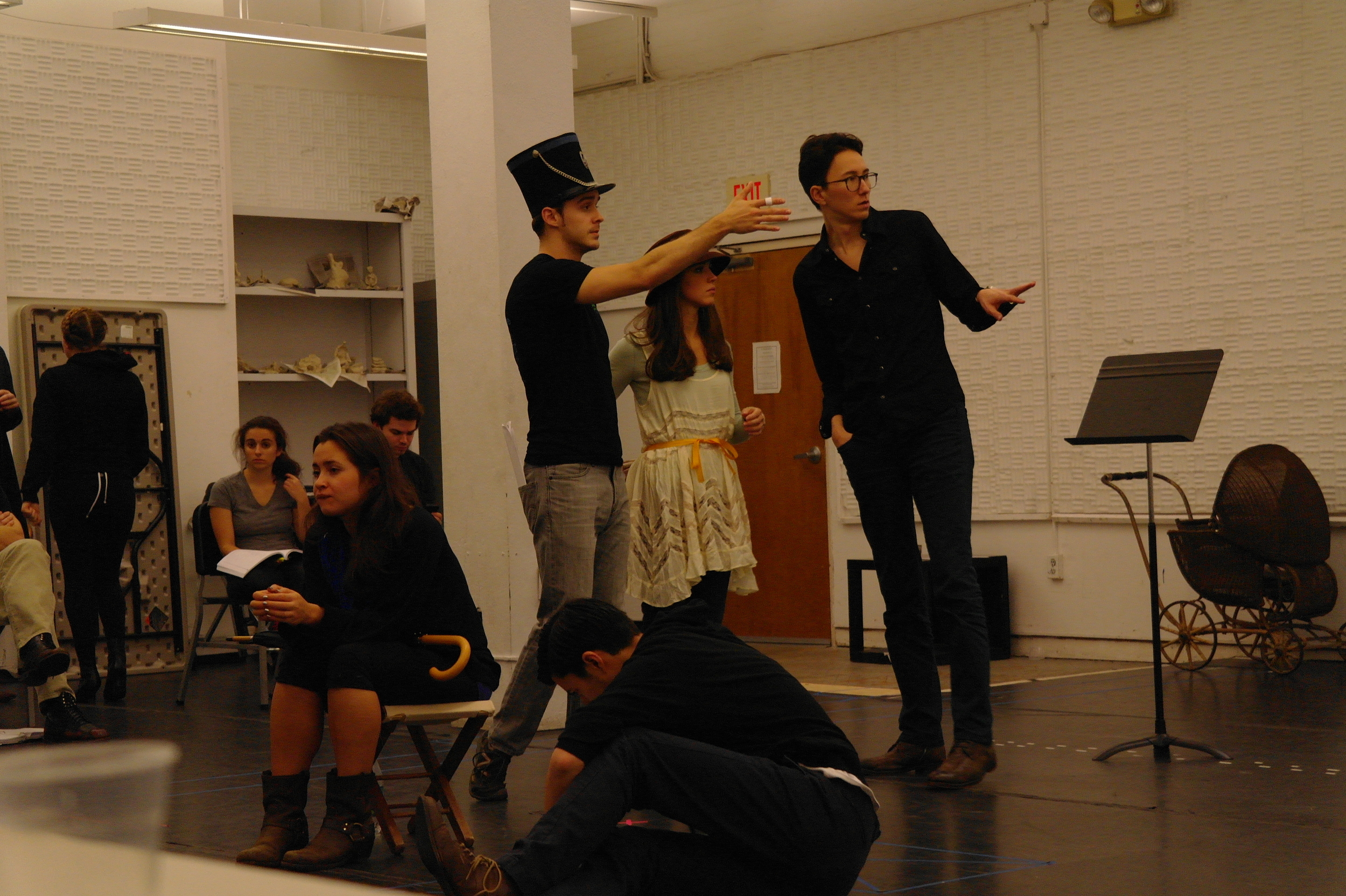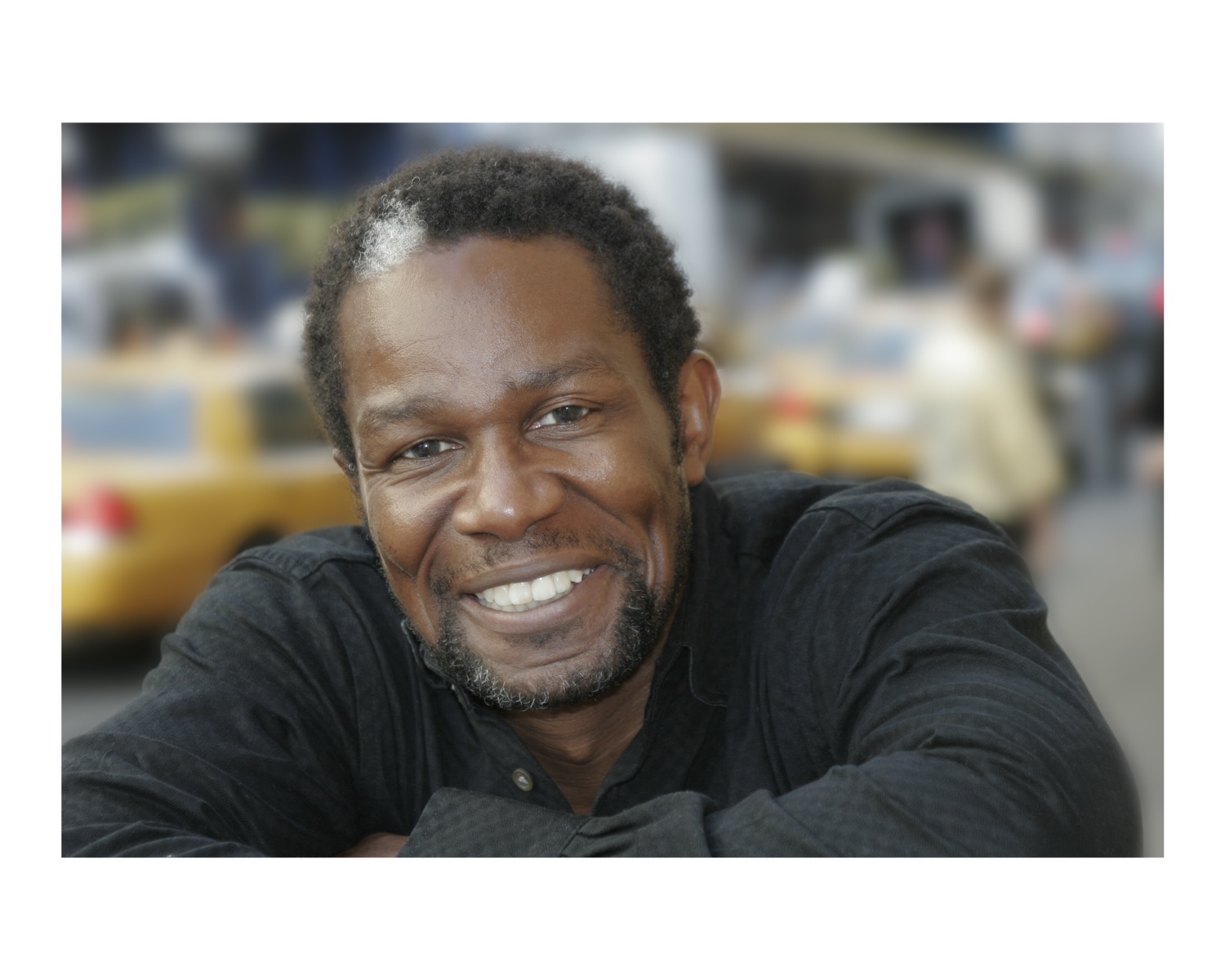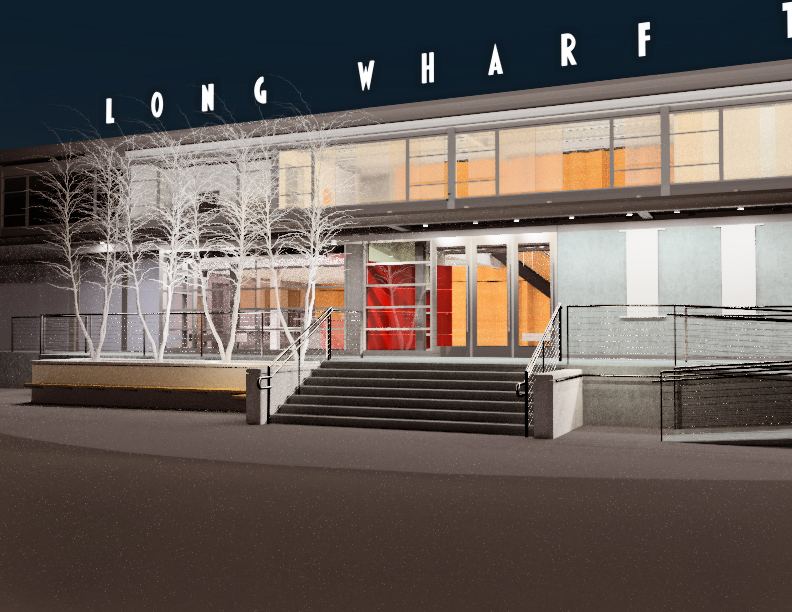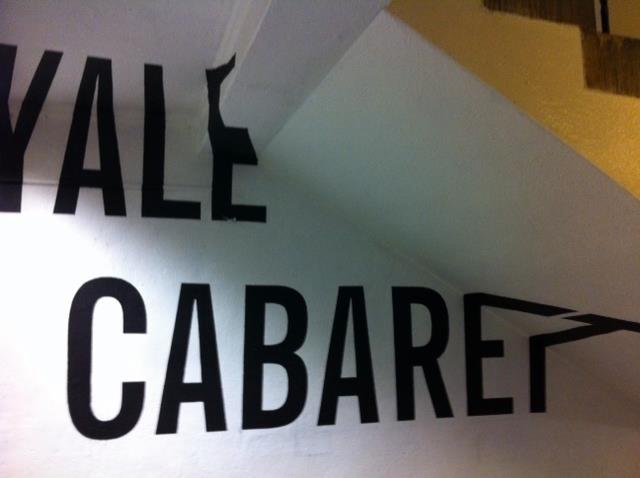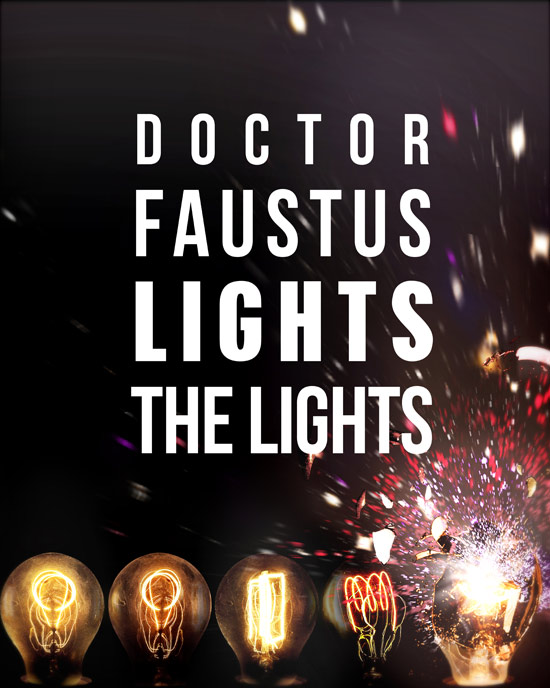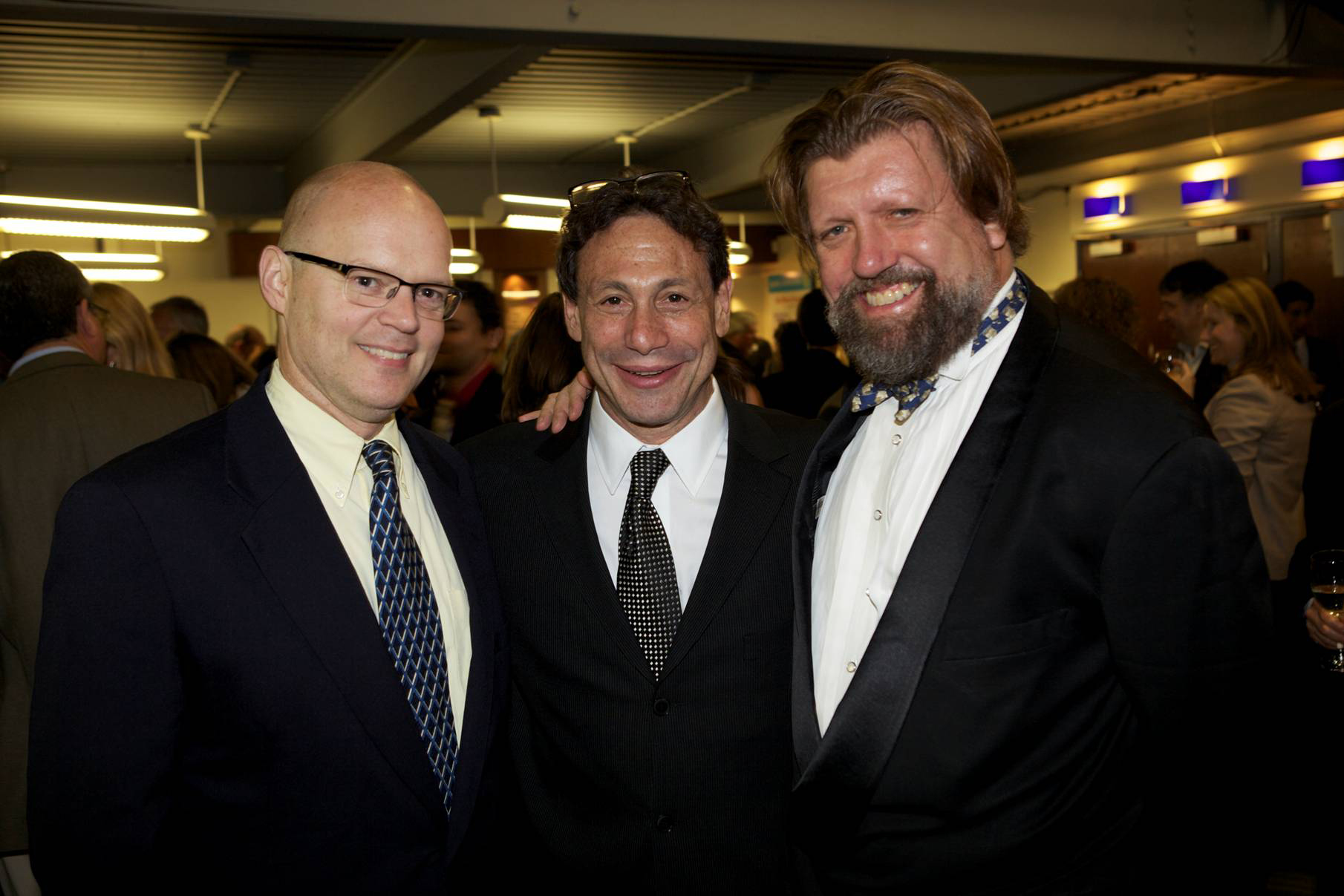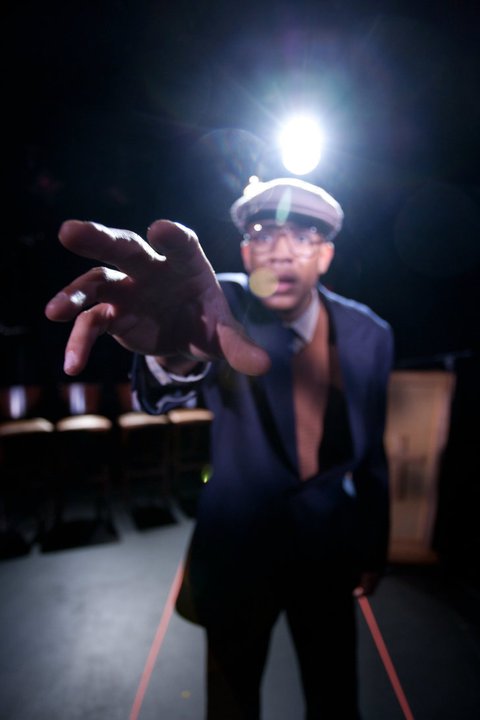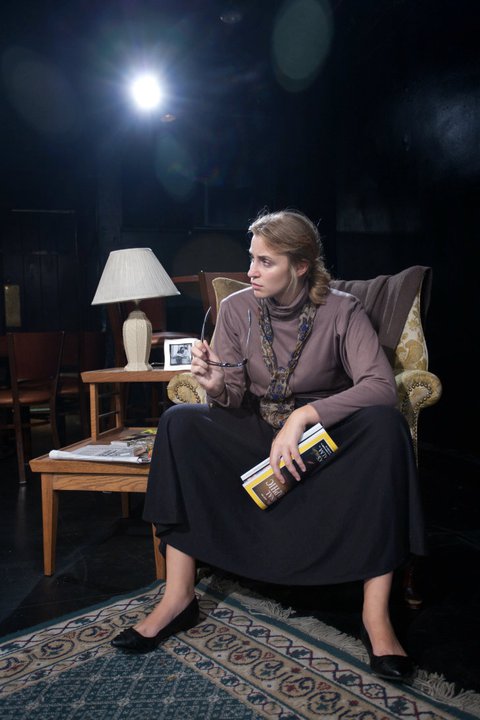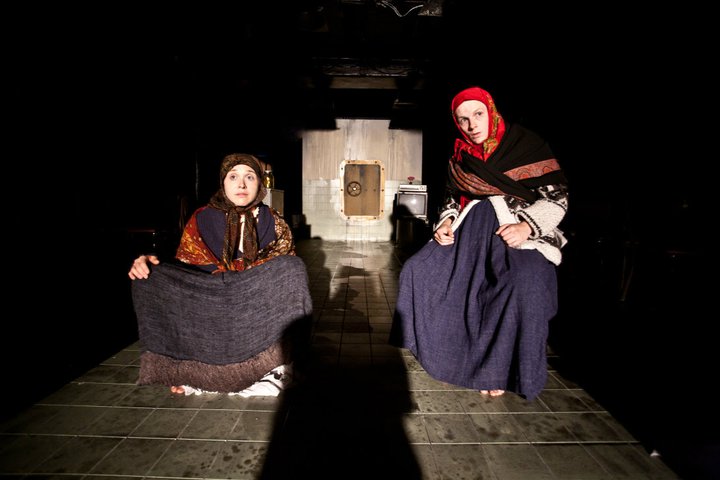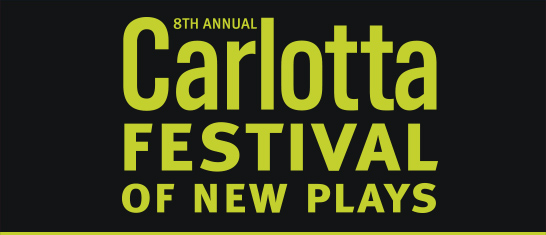 Every year the graduating playwrights of the Yale School of Drama each have a final play produced, much as the graduating directors offer their thesis shows throughout the year. For the playwrights, the occasion is called the Carlotta Festival of New Plays and it runs for two weeks in May, beginning a week from today. Each play is directed by a graduating director and features, for the most part, first year acting students.
Every year the graduating playwrights of the Yale School of Drama each have a final play produced, much as the graduating directors offer their thesis shows throughout the year. For the playwrights, the occasion is called the Carlotta Festival of New Plays and it runs for two weeks in May, beginning a week from today. Each play is directed by a graduating director and features, for the most part, first year acting students.
This year the line-up consists of Amelia Roper’s Lottie in the Late Afternoon, directed by Ethan Heard; Justin Taylor’s House Beast, directed by Jack Tamburri; MJ Kaufman’s Sagittarius Ponderosa, directed by Margot Bordelon.
Amelia Roper, a playwright from Australia, says she likes fiction of the modernist era and has devised a comedy that harkens to the comedies of manners of that period. In Lottie in the Late Afternoon, the laughs derive from Lottie’s effort to create an ideal vacation for herself and her friends—a plan that goes awry, leading to tense and awkward situations that viewers may find hitting close to home. In particular, Lottie is a play concentrating on a certain demographic now reaching their late thirties and coming to terms with the status of their relationships, their ambitions, and their pasts.
Taking place in the present during a weekend in the off season at a New England beach house, Roper’s play lets us into the intimate dynamics among a couple—Lottie and her husband Aaron—and two of Lottie’s best friends: Anne (married, but with a husband who chose not to come away for the weekend), and Clara, who has some history with Anne. Roper says that in some ways the play is “all about the meals,” as the foursome have to sort out the usual tasks and tastes that make for a successful ménage—in the face of the kind of economic instabilities that may well be a defining context for this generation. Add to that the fact that Lottie has packed a stack of books by the likes of E. M. Forster, Jane Bowles, and Iris Murdoch that purport to be vacation tales, but which help to cast over the proceedings a kind of nostalgia for a past that none of these characters has experienced, though they might like to wish they had.
Roper looks to plays by Will Eno, Sarah Ruhl, and Martin Crimp for inspiration, and sees in comedies such as hers a risk in registering “existential angst” as an aspect of otherwise vital friendships. The drama in such situations is not found in major conflict, but in the characters’ struggles to get across feelings and insights amidst the disappointments of not connecting. In other words, the play is as real as your next small social gathering—and maybe as desperate—but bound to be funnier.
Justin Taylor describes his play House Beast as a “comedy when trauma is possible.” Fair enough, given that the play opens with a prologue set in 1992, during the early teens of two of the three characters—Chris and Matt—as they try to make a DIY horror film in an abandoned house in a fictional Californian suburb called Pleasant Valley. Unexpectedly on the scene as well is Matt’s older brother Terry, as a wild afternoon ensues involving some creepy occurrences, a flying goat—and something dramatic between Terry and Chris that ends badly.
Skip ahead twenty years and we find Matt and Chris hooking up—or almost—via the “grinder app” that helps gays get together. In the interim, Matt has moved to LA to be a Hollywood type (or so he hopes), Chris has led a peripatetic life with Worldwide Opportunities on Organic Farms, and Terry, a married man with two daughters, is a well-liked firefighter with a closeted secret life. House Beast looks at how past shame and trauma can haunt the present. We enter the dynamics of a triangle where the two possible love objects for Chris are brothers—and he has baggage with both. The characters are amusing—with the two brothers playing to type and Chris something of a grandiose progressive idealist—though things can get ugly.
Taylor cites Caryl Churchill as a master of the dark comedy he aims for, and says the romantic aspects of the play engage with the timely question of whether happiness is sustainable. His characters would all like to find a means to change the outcome of their pasts together. Taylor gives the characters enough room in which to grow and enough rope with which to hang themselves.
For MJ Kaufman in Sagittarius Ponderosa, the only thing that’s really sustainable is what he calls “the landscape of constant change.” Set in central Oregon, Kaufman’s native state, in a landscape dominated by Ponderosa pines, the play depicts three generations of a family coming to grips with various kinds of transformation in the dark time of the year ruled by Sagittarius—late November.
For Archer, there are the changes that come with turning thirty on top of a gender transformation his family hasn’t quite accepted; for Archer’s dad, hitting sixty and terminally ill from diabetes, there’s that most permanent of transformations—from life into death; and for Archer’s grandmother, in her 80s, there is the possibility of a late-in-life love, though it’s Archer (Angela, to her) she’s trying to make a match for. Landscape in the play is not only emotional and familial, it also partakes of the concerns of Oregon where research into controlled burning, as a technique of combating forest fires, brings a researcher named Owen into the family circle and gives resonance to the play’s location.
The play travels a year from Thanksgiving to Thanksgiving, allowing us to see change and development in the characters over time. The naturalism of the play accommodates devices such as a love potion Grandmother wields, and a ghostly visitation from Archer’s late father as he merges with Peterson, a neighbor in the form of a puppet. Kaufman’s play began as an assignment from Sarah Ruhl that encouraged him to work with Ovidian metamorphosis. The work has allowed Kaufman to engage with the kind of archetypal naturalism found in Thornton Wilder, a favorite playwright of his, handling major themes of love and death and identity with a light touch.
Each playwright feels blessed by the director each is working with. For Roper, Ethan Heard’s sensitivity to characters is perfect for her comedy of relationships; Taylor finds Jack Tamburri’s gutsy energy particularly helpful in creating the exaggerated memory of adolescence the prologue aims for; and Kaufman was inspired by the personal urgency and great visual sense Margot Bordelon has brought to the staging of his play. All three pairings seem matches made in heaven and we can expect a trio of brave, thoughtful and entertaining plays at this year’s Carlotta Festival.
The Carlotta Festival of New Plays
The Yale School of Drama
May 6-14, 2013
1156 Chapel Street, New Haven
